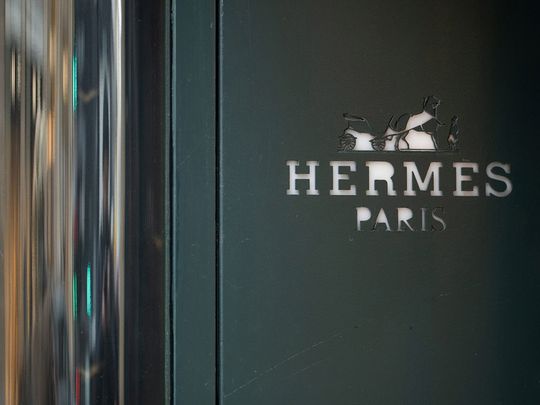
The opulent, French-crafted Birkin handbag is a status symbol for rich people around the world and can fetch more than $100,000. But two shoppers in California claim it has become so exclusive that its maker, Hermes International, is breaking US antitrust law.
Hermes won’t sell the rare bags to just anyone, and it requires potential buyers to purchase thousands of dollars of other products just for the chance they’ll get access to the coveted leather totes, according to a lawsuit filed Tuesday seeking class-action status.
Birkin bags aren’t available for purchase on the Hermes website or displayed in their stores, where sales staff only show them in private rooms to “chosen” shoppers who are “deemed worthy,” Tina Cavalleri and Mark Glinoga alleged in their complaint in federal court in San Francisco. They claim that amounts to an unfair business practice for a public store and a violation of antitrust law.
Hermes didn’t immediately respond to a request for comment Wednesday.
Cavalleri said she’s spent thousands of dollars at Hermes, and was coerced into purchasing “ancillary products in order to obtain access” to a Birkin bag. She claims she was unable to buy one in September 2022 and was told by Hermes that the bags were sold to “clients who have been consistent in supporting our business.”
Glinoga said he “made multiple attempts to purchase a Birkin bag, but was told on each occasion he needed to purchase other items and accessories.”
The suit accused Hermes of structuring its compensation for sales associates in a way that reinforces what they describe as the “unlawful practice of tying the purchase” of Birkin bags to other products. The associates, according to the suit, don’t earn commission on Birkin bags but do on other Hermes products that are less expensive.
Birkin handbags are handcrafted by French artisans and range in price from tens of thousands to more than $100,000, according to the suit. The plaintiffs are seeking unspecified restitution and damages and an order that would require Hermes to shift its sales practices.
The case is Cavalleri v. Hermes, 24-cv-01707, US District Court, Northern District of California (San Francisco).








